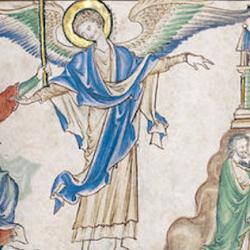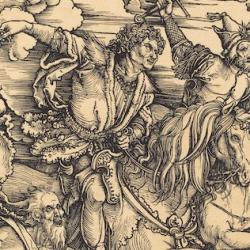Revelation 22:14 provides a brief ordo salutis : “Blessed are those who wash their robes, so that they may have the right to the tree of life, and may enter by the gates into the city.” (Note: There’s a textual variant here; the Majority Text has “blessed are those who keep His commandments.”) Let’s pick that apart.
“Blessing” is the promised gift, the abundant life in communion with the Father and Son.
Blessing comes to those who “wash their robes.” There is a clear allusion to the purity laws of Leviticus 15 and elsewhere, where washing clothes was part of the ritual of cleansing. Given that the next clause mentions the “tree of life,” the defiled robes that need washing are also Adam’s robes, defiled by his disobedience. In the New Testament, it’s a fairly obvious baptismal reference. Those who are washed are blessed.
The particular blessing promised to the washed is “the right ( exousia ) to the tree of life.” Washing is a grant of privilege and authority. It is admission to a meal. And if the washing is baptism, the tree of life is Eucharist. And if the washing is applied to children, then those children have a right to the tree in the garden. Revelation 22:14 is a prooftext for paedocommunion.
Adam was excluded from the garden, but by the time the washed are allowed to reenter, God has made His garden into a city. Those who are washed have a right to the meal, and are permitted to enter through the gates. Gates are places of judgment, and the washed are judged worthy to become part of the city life. The meal to which the washed are admitted is a civic feast, the marriage supper celebrating the marriage of God with His city-bride.














